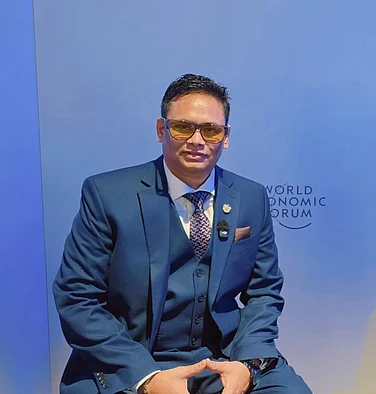The company caters to individuals looking to enhance their quality of life with a diverse portfolio of high-quality products, ranging from health and wellness solutions to travel packages and educational offerings.
At the heart of QNET's business model are its independent representatives. According to the company’s website, selling QNET products allows independent representatives to earn by selling products at retail prices and keeping the difference between the retail and their discounted costs. This model enables them to maximize their earnings based on the effort they put into their sales activities.
Independent representatives earn weekly sales commissions based on the sales they and their team generate. The commission amount per sale is determined by the independent representative's active pay rank, which incentivizes both personal and team sales growth.
New independent representatives who achieve the required business volume in sales within the first four weeks receive their first sale commission earlier. This early payout motivatesg new members to actively engage and reach their sales targets quickly, setting a solid foundation for their future success with QNET.
Over the years, the company has established itself as a significant player in the direct selling industry, particularly in the emerging markets of Asia, Africa, and the Middle East. QNET takes pride in its role as a champion of entrepreneurship, providing people from all walks of life with the tools and opportunities to become successful business owners.
QNET’s commitment goes beyond selling products to empowering individuals to take control of their lives, fostering a spirit of entrepreneurship, and creating a supportive community of like-minded individuals. Through QNET, people aren't just buying products but investing in themselves and their futures.
QNET is very transparent about its business operations and what’s expected from its independent representatives. Despite the company’s success, it’s encountered its share of challenges in the industry. Over the years, it’s faced accusations of operating as a scam or pyramid scheme. However, the company has consistently and firmly refuted these allegations.
Where Can I Get Info About QNET Scam?
Information about QNET scam allegations can be obtained from several sources. The official QNET website is a primary resource, as the company often addresses these allegations and provides official statements regarding its business practices.
Legal documents and court rulings related to QNET in various countries can offer insights into how different legal systems have judged the legitimacy of QNET's operations. The enterprise has engaged in numerous legal battles across different countries, with courts often ruling in its favor and affirming its legitimacy as a direct selling enterprise.
A notable example occurred when India's Supreme Court dismissed a Public Interest Litigation accusing QNET of being a Ponzi scheme, stating that the company operated within legal parameters.
The company has also intensified its efforts to ensure compliance with international direct selling standards. QNET implemented rigorous policies to prevent unethical practices and enhance transparency. These measures include detailed disclosure of earnings potential, clear communication about the business model, and strict adherence to direct selling regulations in various countries.
Biram Fall, regional general manager of sub-Saharan Africa, stated, “Fortunately, [QNET is] able to shake off this bad image through creating awareness.”
To combat misinformation, QNET has invested in educational initiatives. The business regularly conducts seminars, workshops, and online courses to educate the public and its independent representatives about its business model and direct selling practices. These programs clarify the distinctions between legitimate direct selling and illegal pyramid schemes.
CEO Malou Caluza stated, “We engage with our independent representatives regularly to understand their needs and tweak or change our training based on the evolving demographic of IRs.”
At its core, the company's business model centers on amplifying entrepreneurship. It offers a platform for independent representatives to operate their businesses, providing flexibility in how and when they work. This approach attracts individuals seeking autonomy and income potential based on their efforts and networking skills. The company's approach encourages an entrepreneurial mindset rather than traditional job dependency.
Expansion and Innovation Drive Growth
QNET has successfully expanded into new markets and introduced innovative product offerings, contributing to its growth. Additionally, QNET has demonstrated a solid commitment to corporate social responsibility, earning positive recognition. The company has established partnerships with international organizations to support education, health care, and community development, and sustainability initiatives, further solidifying its reputation as a socially-conscious enterprise.
In education, QNET has collaborated with its social impact arm, the RYTHM Foundation, to support the Maharani program in India. This initiative empowers disadvantaged young women through skills training and personal development workshops. The program has reached thousands of girls across multiple states in India, providing them with valuable life skills and career opportunities.
The company has also been involved in health care-related corporate social responsibility activities. One notable example is the Pillars of Strength project in Sri Lanka. This focuses on providing prosthetic limbs to individuals who have lost them due to various reasons, including the civil war. Its support has helped numerous individuals regain mobility and independence.
The company has engaged in several community development projects. For instance, it has worked with Water For Africa, a U.K.-based charity, to provide clean water access to rural communities in Tanzania. This initiative has involved the construction of boreholes and water distribution systems, significantly improving the quality of life for thousands of people.
“Providing clean water is more than a service; it’s upholding a fundamental human right,” stated Fall.
QNET has also supported environmental conservation efforts and is committed to humanitarian aid in response to global crises. The company initiated the FinGreen financial literacy program in several countries, including Turkey and Indonesia. This program aimed to educate vulnerable communities about personal finance management, helping them navigate the economic challenges brought on by the pandemic.
Through these initiatives, QNET has sought to create a positive social impact across various regions where it operates, contributing to its image as a company that values social responsibility alongside its business objectives.


























